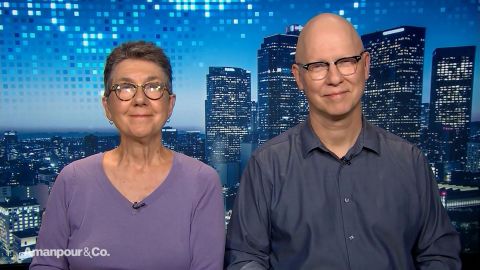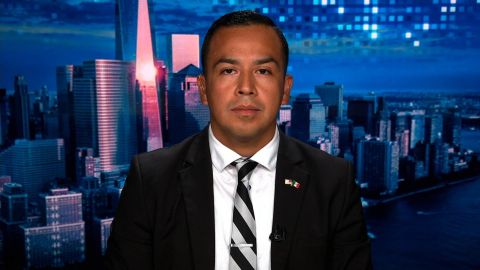Read Transcript EXPAND
CHRISTIANE AMANPOUR: OK. So, let’s start first with Ken Cuccinelli’s words. How do you interpret what he has amended from the Emma Lazarus welcome and what he states in terms of defining what wretched meant when that poem was written?
CESAR VARGAS, NEW YORK’S FIRST UNDOCUMENTED LAWYER: Well, let’s be clear about the facts especially of what this administration is doing. You know, they are saying they are trying to make immigrants self-sufficient. And the reality is that we know that undocumented immigrations don’t receive any type of government benefits, we know very well that immigrants are actually mostly off the books. And I think when — your question about the Statue of Liberty, you know, frankly, this is un-American, when we are literally trying to rip out those words, those words that have meant so much for so many immigrants for generations, it’s very clear that this is another attempt of the administrations attack on legal immigrants, on undocumented immigrants and really to reshape our immigration system to, once again, target immigrants of color. The public charge rule has been in the books since the 1880s and it actually came in the picture during the Chinese Exclusion Act when the U.S. sought to criminalize and sought to blame Chinese immigrants for log wages, for economic turmoil. Again, we’re seeing that once again where the people are blaming Latinos, blaming immigrants from Central America because of problems in the U.S. So, you know, we are seeing this once again that it’s an un-American attempt to target immigrants and to really the base of what this nation is about, which is a nation of immigrants. And immigrants are working, immigrants are paying taxes, $11.2 billion in taxes, state tax, in local taxes and even more in federal taxes. So, you know, we are seeing that the numbers don’t add up. We are seeing very clear another attempt of this administration target immigrants of color.
AMANPOUR: Tell me why you think it will just be as the critics point out or as they claim it will target, as you just said, immigrants of color and maybe low-income and maybe that’s a certain demographic that, I don’t know, wants to, needs — the administration wants to target. But my question is this. You are working with a lot of immigrants, people who are trying to, you know, get their papers in order. You are also working for Immigration Reform. What kind of individuals, what kind of benefits put these individuals at risk? I mean, you said that most of them don’t go on benefits. So, what is the — I mean, where’s the meat there, so to speak?
VARGAS: Yes. Just to see how it was implemented. So, prior to what this rule did, anyone who receive cash benefits, cash assistance, who receive loan institutional care would be subject to this public charge rule. That was a very narrow interpretation of what we saw prior to this administration.
About This Episode EXPAND
Christiane Amanpour speaks to Cesar Vargas about his reaction to the Trump Administration’s latest moves concerning immigration. Julia Reichert and Steven Bognar join the program to discuss the documentary they co-directed, “American Factory.” Danny Meyer joins Walter Isaacson to reflect on his career as a restaurateur and the CEO of Union Square Hospitality Group.
LEARN MORE


